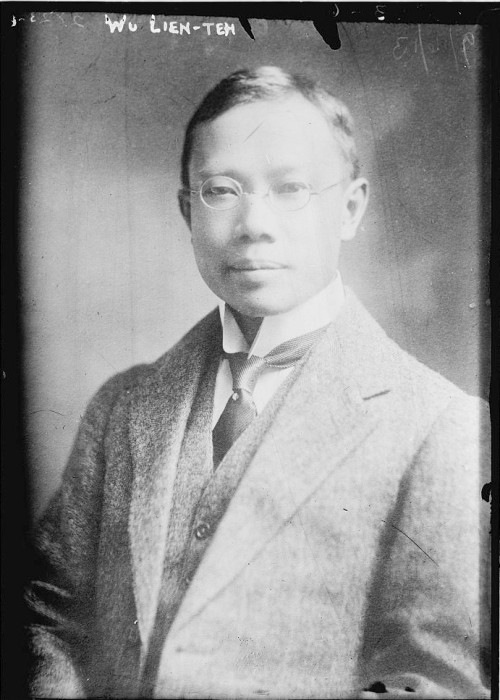
Dr. Wu Lien Teh (or Wu Liande, 伍连德) was a Penang-born doctor of Chinese descent who received his MD from Cambridge University. When a plague epidemic broke out in China’s Manchuria province in 1910, he was appointed to head the Chinese response.
Dr. Wu performed what is thought to be the first-ever modern postmortem exam in China. Not on a Chinese person, which was highly taboo, but a Japanese woman who had died from the epidemic. He discovered Yersinia Pestis in the deceased’s tissues and from his examination concluded that the epidemic was pneumonic plague.
People had thought rats and fleas were spreading a bubonic plague, and so focused efforts on exterminating rats. But Dr. Wu finding pneumonic plague meant the sickness was infecting patients through human breath or sputum, and efforts needed to focus on preventing human travel, masking, and proper quarantining. Dr. Wu had convinced the Russian and Japanese railway authorities to cease operation of all trains in 1911. These efforts cut off all transportation, so the epidemic was mainly contained to Manchuria. He also developed a widely-used and more-effective mask.
In 1935, Dr. Wu Lien Teh became the first Chinese doctor nominated for the Nobel Prize in Medicine.
